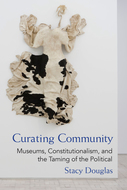We have the following Call for Papers/Panels:
Legacies of Slavery | Landscapes of Segregation
Universities Studying Slavery Fall 2022 Conference
September 28-October 1, 2022
Charlottesville, VirginiaIn Fall 2022, the University of Virginia and its President’s Commission on the University in the Age of Segregation (PCUAS) will host the USS conference: Legacies of Slavery | Landscapes of Segregation, highlighting slavery’s many enduring legacies after emancipation and also confront the American academy’s history of both benefiting from and perpetuating those legacies. We seek to examine a wide variety of topics: reconstruction, disfranchisement, redlining, racially restrictive zoning, racial terrorism, policing and incarceration, racist science’s impacts on public policy, and resulting inequalities in health, industry, housing, and education. Although the central theme focuses on the post-emancipation world, the conference will address a wide array of topics related to slavery, slavery’s afterlives, and universities.
We encourage submissions for both single papers and full panel proposals (max. 4 presenters and moderator/chair) that address any aspects of the theme as well as those that consider the history, public history, preservation, or memorialization of sites of enslavement or segregation. Faculty, graduate students, public historians, preservationists, university administrators, and independent scholars are welcome to submit individual papers or full panels. We also invite undergraduate student posters on research, activism, and student organizational work, among other topics.
Panel proposal submissions must include a 125-word maximum panel description that includes a proposed title as well as individual 250-word maximum paper proposals and brief bios (100 words max) for each participant.
Individual paper and poster proposal submissions should provide 250-word proposal and 100-word maximum brief bio.
Proposals are due by July 1, 2022
Please submit proposals at USS Conference Fall 2022.
-- Karen Tani

